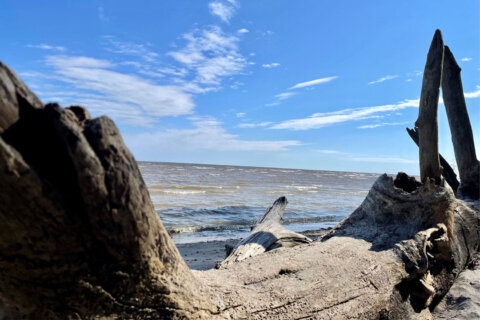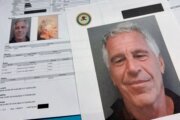An ornithologist at the Smithsonian told WTOP on Tuesday that experts are still trying to figure out what’s behind a “mortality event” that’s been plaguing birds in the D.C. area.
“We don’t know what the cause is for that bird mortality event,” said Dr. Brian Evans, an ornithologist at the Smithsonian Migratory Bird Center, who studies the population ecology of wild birds in the D.C. area. “It’s a rather large event.”
And scientists are also trying to figure out how widespread the problem is.
“It appears to be Mid-Atlantic, for the most part,” Evans said, stretching from Delaware and Pennsylvania, down through Virginia. But he said he’s heard reports of affected birds in Cincinnati and possibly even Florida.
There’s any number of possible causes, from environmental factors to even the recent emergence of Brood X cicadas, but Evans was quick to point out that there’s no way to know yet what’s behind the mortality event. (On Wednesday morning, he added that tests from the National Wildlife Health Center have come back inconclusive.)
“The most important thing we can do right now,” he said, “is to prevent the potential of disease spread.”
That means emptying out your bird feeders and bird baths, which Evans called “major sources of disease transmission.”
“Birds aren’t great at social distancing around these resources,” Evans said, so the U.S. Geological Survey says people should remove their bird feeders and bird baths and clean them with a 10% bleach solution.
“Many people, including me, enjoy feeding birds,” Evans said, “but we don’t recommend doing so until we get word from USGS that it’s safe.”
Some of the most prominent symptoms include blindness, often from eyes that are crusted shut or swollen, and neurologic symptoms, “such as tremors, weakness or an inability to stand.”
He added, “I’ve had personally five in my neighborhood (in Takoma Park), that myself or my neighbors have discovered. … I mean, the birds that we found in my neighborhood, you literally could just pick up with your hand.” He was quick to add that you shouldn’t do that because the birds could be infectious.
If you see a bird with the sort of symptoms mentioned above, Evans said you should contact City Wildlife if you’re in D.C. at 202-882-1000 or at info@citywildlife.org.
If you are in Virginia, contact the Department of Wildlife Resources.
If you’re in Maryland, you should get in touch with your local wildlife rehabilitator. You can find out who that is by calling the Department of Natural Resources in Maryland at 877-463-6497 or going to its website.








